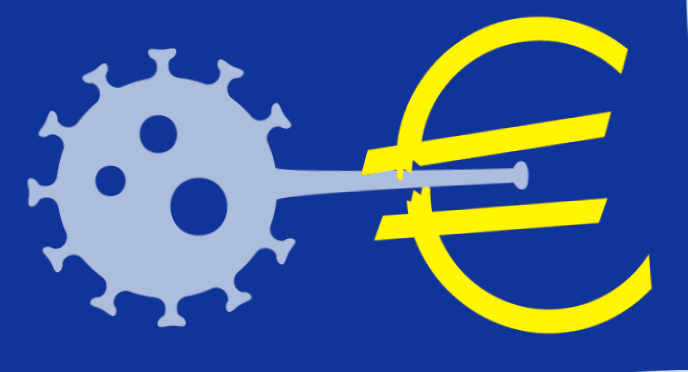Merkel and macron agree on quasi-eurobonds

Graphic: tp
Half a trillion euros of additional new corona debt to be repaid through contributions to eu budget
Following a video meeting, french president emmanuel macron and german chancellor angela merkel yesterday announced an agreement on a half-trillion-euro european corona reconstruction fund to supplement the 540 billion euros in borrowing agreed so far. The money is to be raised through jointly contracted public debt, which will be paid from the eu budget over the next 20 years. German taxpayers will contribute the largest net share to this eu budget.
Merkel justified this yesterday by citing what she called the most "the most serious crisis the eu has ever faced in its history" and that a "the unique effort required by the" required. Macron, who had been promoting eurobonds long before the corona crisis, spoke of a significant "important stage" and said, "an agreement between germany and france [was not yet] an agreement among the 27 member states", but there is "no agreement between the 27 if germany and france have not agreed first".
Conte for, kurz against
The fact that the new quasi-eurobonds must be agreed unanimously is due to their linkage to the eu budget framework on the one hand and the increase in the own resources ceiling required for this on the other. In the other 25 eu member states, whose finance ministers are holding video negotiations today with their counterparts from germany and france, there are differing views on merkel’s and macron’s plan.
Italian prime minister giuseppe conte (who would likely be the main beneficiary of the quasi-eurobonds due to his country’s legacy debt and particular exposure to covid-19) praised the plan, while austrian chancellor sebastian kurz tweeted that while they would like to "continue to show solidarity and support countries most affected by the corona crisis" – but this must be done "through loans and not through grants". He agreed with the governments of denmark, sweden and the netherlands.
Lagarde and von der leyen praise
Christine lagarde, head of the european central bank (ecb) and eu commission president ursula von der leyen, on the other hand, welcomed the quasi-eurobonds as a "welcome" and "constructive". Von der leyen wants to give the 27. May, the eu parliament will present its own package of measures, for which it has already received a package of demands amounting to two trillion euros (cf. Eu parliament wants two-trillion-euro "reconstruction and transformation fund"). Also these 2.000 billion is to be "through the iance of long-term reconstruction bonds guaranteed by the eu budget" that is, debts for which the member countries are indirectly jointly liable.
Merkel, macron, von der leyen and the politicians in the eu parliament can hope that the european public will accept this more easily during the corona crisis than at a time when eu debt was a separate ie. As early as 2007, naomi klein explained in her book the shock strategy how politicians and economists use crisis situations to implement projects that might otherwise not have had a majority among the population (cf. Of sports palace speeches, hijacked terms and social buffer overflows). The examples she cites of this are primarily privatizations and deregulations that policymakers and the media have been pushing for in the last two decades of the 20. And the first decade of the 21. Century dominated. But the underlying mechanism can also be used for other projects (cf. Juncker and schulz use naomi klein strategy).
For other purposes, money can potentially be used, the borrowing of which is approved with the corona aid argument. That this could happen to a certain extent was hinted at by merkel herself yesterday when, in connection with the quasi-eurobonds, she spoke of investments in digitization and a "green deal" spoke. The goals formulated in the eu package also include concerns such as a requirement of the "digital transformation".
Eu commission president ursula von der leyen also admitted that she wanted to use the corona crisis to implement other projects such as reducing co2 emissions. "Sooner or later", the cdu politician said, scientists and researchers were "scientists and researchers would find a vaccine against the coronavirus", which it "against climate change" will not exist. Therefore, according to her words, only an unspecified "of the money" will be used to revive the economy and expand health care. With the rest, she wants to expand her investeu lending program and make "strategic investments" active.
